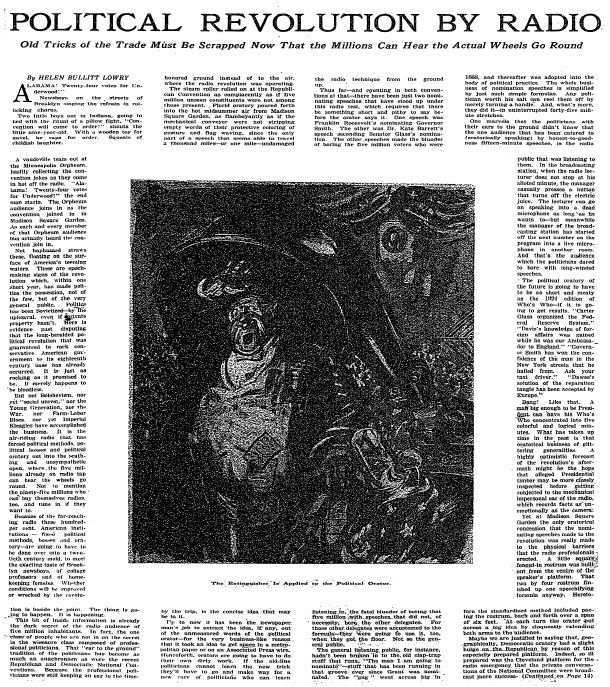Political Revolution by Radio
1924's Republican and Democratic Conventions were the first broadcast by radio. That July, Helen Bullitt Lowry wrote in New York Times Magazine that FDR — eight years before winning the presidency — delivered one of only two addresses delivered well for this new medium.
First, Lowry wrote, this entirely new communication method would change everything:
These are epoch-making signs of the revolution which, within one short year, has made politics the possession, not of the few, but of the very general public.
...
Because of the far-reaching radio, these hundred percent American institutions — fixed political methods, bosses, and oratory — are going to have to be done over into a twentieth century mold.
But would these changes be for better or for worse?
Whether conditions will be improved or wrecked by the revolution is beside the point. The thing is going to happen. It is happening.
In a prescient prediction of things to come, Lowry cited Franklin D. Roosevelt as one of the best orators for radio. At the time, FDR was between stints as the unsuccessful 1920 Democratic vice presidential nominee and his later successful 1928 big for New York governor.
Lowry raved:
Thus far — and counting in both conventions at that — there have been just two nominating speeches that have stood up under this radio test, which requires that there be something short and pithy to say before the orator says it.
One speech was Franklin Roosevelt's nominating Governor [Al] Smith. The other was Dr. Kate Barrett's speech seconding Senator Glass's nomination. The other speeches made the blunder of boring the five million voters who were listening in.
Sure enough, FDR would go on to become America's "radio president," delivering 31 Fireside Chats by radio during his administration.
Political Revolution by Radio: Old Tricks of the Trade Must Be Scrapped Now That the Millions Can Hear the Actual Wheels Go Round
Published: Sunday, July 20, 1924


